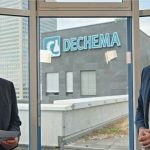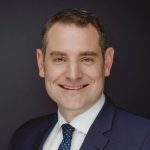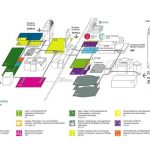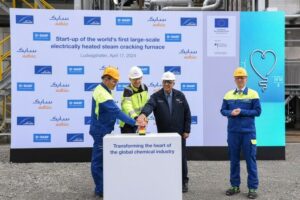In a normal year, about 3700 exhibitors register for Achema. Nearly 2200 firms have so far confirmed their attendance at the 2022 event. Dr Mathes, was it a mistake to move Achema 2022 from April to the end of August, in other words during the peak holiday season?
Dr Björn Mathes: In retrospect, it would have been almost impossible to hold an event with such a strong international bias as Achema during the first week of April as originally intended. From that point of view, yes, it was the right decision. With close on 2200 exhibitors divided between 12 exhibition groups and spread across 13 hall levels, Achema will continue to live up to its claim as the leading international trade fair for chemical and pharmaceutical technologies.
The reason for postponing it was the rising infection rate due to the Omicron variant. The pandemic is not over yet and the number of new cases reported daily is rocketing again. Will Achema really be able to take place?
Dr Mathes: Definitely. It’s true that the Omicron variant BA5 is rampant at the moment. However, like other exhibition organisers, we’re much better equipped to deal with it than we were in the past. Health and safety concepts have been developed that have meanwhile proven themselves at numerous trade shows. They’ll also be in place at Achema this summer.
Will the lower exhibitor numbers have any effect on the hall layout?
Dr Mathes: Achema will be slightly more compact this year. We’ll be occupying 13 hall levels at the Frankfurt exhibition grounds.
How many do you occupy normally?
Dr Mathes: There are normally 16 hall levels. We cancelled a few of them after deciding to postpone, but we’ll continue to occupy the entire exhibition grounds apart from Halls 1 and 10. We’ll be using Hall 12 for the first time to accommodate Mechanical Processes. As usual, trade visitors will find Pharmaceutical Techniques in Hall 3. Pumps, Compressors, Valves and Fittings will be located in Halls 8 and 9.0.
The Digital Hub exhibition group is brand new. Where will its space be?
Dr Mathes: It will be sharing Hall 11.0 with Instrumentation, Control and Automation Techniques.
What influence will the war in Ukraine and the various sanctions imposed in that context have on Achema? I’m particularly thinking here of exhibitors and visitors from Russia, Belarus and Ukraine.
Dr Mathes: Russia was never a major exhibitor market for us. As we sit here talking, we’re expecting two Russian firms that are neither state nor semi-state-owned and not affected by any sanctions. It’s a similar story when it comes to visitors. Russia, Belarus and Ukraine have never been dominant in terms of quantity. Having said that, though, Russian visitors have been very strong investors in recent years.
The chemical industry is more dependent on fossil fuels and raw materials than almost any other sector and the shortages here are likely to become even more acute as a result of the Ukraine war. That will further increase the pressure to decarbonise the chemical industry. Dr Mathes, will this mounting pressure to act also be visible at Achema?
Dr Mathes: Absolutely. The uncertainties and the dwindling raw material base are forcing the chemical and pharmaceutical industries to invest in sustainable, carbon-neutral technologies much sooner than they would have done otherwise. That won’t be easy, of course, because the industry is under tremendous pressure due to the war and a recession may well be looming. On the one hand, that makes it more difficult to invest in new, sustainable technologies. On the other hand, the political framework is not going to change and nor is the pressure to achieve climate targets. And an awful lot of exhibitors – in fact virtually all of them – will be showing technologies to help achieve these climate objectives.
The exhibition and congress programme will be even more closely integrated at this year’s Achema. Dr Mathes, what does that mean specifically for visitors and exhibitors?
Dr Mathes: We know from past experience that many trade visitors only visit those halls where they can be sure of finding exhibition groups that interest them. Many of them shy away from the long walk across the exhibition grounds to the Congress Center CMF, not least because of the time it takes. That’s why we’ve traditionally looked for ways to bring the Congress, the Praxisforums and discussion formats closer to thematically related exhibition groups. And we’ve made a very good job of that this year. The result is shorter distances and more thematic interaction between the lectures in the congress programme and what’s going on at the exhibition and the booths.
Isn’t that simply a clever move right now to divert attention away from exhibition space that would almost certainly remain unused?
Dr Mathes: I wouldn’t put it quite like that. But it is indeed the case that we’ve gained extra space due to the smaller number of exhibitors, and that’s made it easier to realise a goal we’ve been pursuing for a long time. All in all, though, only 6 out of 21 stages are located directly in the exhibition areas.
Do you also plan to stick with the strategy of a more closely integrated exhibition and congress at Achema 2024?
Dr Mathes: Yes, that’s what we’re planning.
But let’s get back to the congress programme. There are five theme days on the agenda this year. What topics will they address?
Dr Mathes: The first day will be dedicated to the “Hydrogen Economy”. “Fossil Free Production” and “Perspectives in Laboratory & Analytics” will follow on days two and three of the fair. The fourth day will be devoted to “Digitalisation in Process Industry” and the fifth to “Novel Bioprocesses and Technologies”.
Sustainability and digitalisation will be key issues at Achema 2022. The former will be highlighted in the “Green Innovation Zone”, for instance. Dr Mathes, what can visitors expect to find in this exhibition area?
Dr Mathes: Everything in this special area will revolve around the green transformation of the chemical and pharmaceutical industries. It will bring together pioneers, experts and solution providers from industry, politics and science with decisionmakers and users. For example, there will also be contributions from the financial sector on green investments and ESG ratings. Representatives of NGOs will likewise have their say. Last but not least, we’ll be presenting successful sustainability projects that have benefited from public funding.
Key issue number two will be digitalisation, as reflected by the new Digital Hub exhibition group and the Digital Lab Action Area. What will be going on in these two exhibition areas?
Dr Mathes: The Digital Hub will be the central meeting point for digital experts and all participants interested in, or actively involved in the digital transformation of the process industry. The exhibition group will put digital showcases of the process industry firmly in the spotlight. The central anchor point of the Digital Hub will undoubtedly be the “Siemens Digital Innovation Stage”, which will spark productive discussions of the process industry’s hottest digitalisation topics. In the Digital Lab Action Area in Hall 4.1, we’ll be collaborating with various exhibitors to build the fully automated and digitised laboratory of tomorrow.
Dr Mathes, I’d like to end this interview with a prediction from you: How many trade visitors do you estimate will be making the trip to Achema 2022?
Dr Mathes: We know from other fairs that the lower number of exhibitors is in direct correlation to the number of trade visitors. The current level of registrations is around 60 percent compared to the last Achema, so I’m confident that we’ll manage to attract between 70,000 and 80,000 visitors.
Summer, sun, beach, family – or stuffy exhibition halls full of pumps, compressors and process control technology? Can you sympathise with potential Achema visitors who choose the family and holidays option instead?
Dr Mathes: Visitors to Achema generally come for a day. Summer lasts longer than a day and it lasts longer than the final week of August. If you look at it that way, it’s not so much an either-or decision as a both-and.
Dr Mathes, thank you very much for the interview.
 At the video shooting: Dr Björn Mathes (right) and Lukas Lehmann
At the video shooting: Dr Björn Mathes (right) and Lukas LehmannPicture: Harald Frater – prozesstechnik.tv
More Information: prozesstechnik.tv
At the beginning of July, the cav/prozesstechnik.tv editorial team was a guest at Dechema in Frankfurt/M. On this occasion we recorded the interview with Dr. Björn Mathes. You can find the video on prozesstechnik.tv.
The interview was conducted by:Lukas Lehmann
Editor (responsible under German Press Act)










